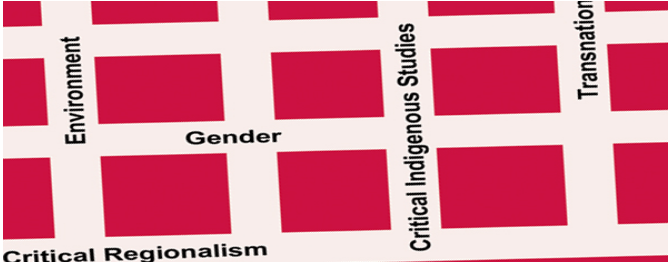
American Studies ETDs
Publication Date
6-4-2022
Abstract
This dissertation examines the global spatial surveillance of Indigenous peoples, nations, and territories in the twenty-first century through a multi-site relational analysis of colonial surveillance and Indigenous cartography in the United States, India, and Palestine. Analyzing Indigenous graphic novels, video games, virtual reality, performance protests, and visual art, I demonstrate how air and the aerial perspective actively shape what happens on and below the ground. I argue that Indigenous experiences of and responses to colonial and counterinsurgent surveillance are not limited by the geographic and legal bounds of nation-states but are rather linked through global histories of militarization and colonialism. Furthermore, Indigenous cartographic expressions of sovereignty and self-determination challenge both the immutability of settler states and colonial ways of seeing. This project intervenes in cultural studies and Indigenous geography to consider the volume of Indigenous territory above, below, and on the surface of the earth.
Keywords
Indigeneity, Indigenous geography, colonialism, decolonization, surveillance, cartography
Document Type
Dissertation
Degree Name
American Studies
Level of Degree
Doctoral
Department Name
American Studies
First Committee Member (Chair)
Alyosha Goldstein
Second Committee Member
Laura Harjo
Third Committee Member
Alexander S. Lubin
Fourth Committee Member
Rebecca Schreiber
Recommended Citation
Iralu, Elspeth. "Technologies of Territoriality: Indigeneity, Surveillance, and the State." (2022). https://digitalrepository.unm.edu/amst_etds/123
